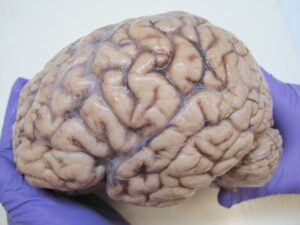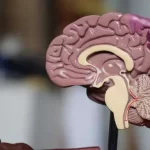Stress Causes Brain Damage: The Scientific Connection Between Chronic Stress and Brain Dysfunction
 Recent statistics have sounded alarms within the global health community. Alarmingly, 75-90% of all doctor’s office visits are for stress-related ailments and complaints. Furthermore, chronic stress has been linked to the six leading causes of death: heart disease, cancer, lung ailments, accidents, cirrhosis of the liver, and suicide. More than ever, it’s become imperative to understand the profound effects of stress on our brain, a connection rooted in our evolutionary response to threats. Yet, when this natural response becomes chronic, the brain suffers, causing lasting damage.
Recent statistics have sounded alarms within the global health community. Alarmingly, 75-90% of all doctor’s office visits are for stress-related ailments and complaints. Furthermore, chronic stress has been linked to the six leading causes of death: heart disease, cancer, lung ailments, accidents, cirrhosis of the liver, and suicide. More than ever, it’s become imperative to understand the profound effects of stress on our brain, a connection rooted in our evolutionary response to threats. Yet, when this natural response becomes chronic, the brain suffers, causing lasting damage.
The brain, our body’s primary control center, is vulnerable to the negative impacts of stress. While stress is inherently a part of life, acting as our “fight or flight” response to perceived threats, chronic stress can have devastating consequences. The activation of our brain’s “fear center,” the amygdala, by stress leads to a cascade of events, from the production of the stress hormone cortisol to increased glucose levels and heart rate. While these are natural responses to momentary threats, chronic activation of these pathways can have dire consequences.
When under the influence of chronic stress, the amygdala remains perpetually active. This continuous engagement causes persistently elevated cortisol levels, leading to digestive problems, sleep disturbances, and a weakened immune system. Additionally, such prolonged stress reduces the energy available to other brain regions, impeding their proper function.
One of the most noticeable impacts of chronic stress on the brain is memory impairment. Under stress, even mundane challenges like locating misplaced keys can become insurmountable tasks. Dr. Kerry Ressler, chief scientific officer at McLean Hospital and a professor of psychiatry at Harvard Medical School, notes, “The brain is shunting its resources because it’s in survival mode, not memory mode.” Furthermore, chronic stress can cause changes in brain structure. The balance between gray and white matter – crucial components of our brain responsible for decision-making, problem-solving, and information communication – can be severely disrupted.
Disturbingly, stress has the potential to kill brain cells, specifically in the hippocampus, a region involved in memory. Despite our brain’s ability to produce new neurons, research indicates that these newly minted cells are more susceptible to death when created under stressful conditions. Moreover, areas of the brain connected with emotions, metabolism, and memory can shrink due to chronic stress.
Yet, it’s not all bleak. Moderate stress can bolster cognitive function, fortifying neuronal connections and enhancing memory and attention span. Such effects explain why some individuals thrive under pressure.
A ground-breaking study from the Department of Brain and Cognitive Sciences at DGIST has unveiled startling evidence: chronic stress triggers autophagic death in the hippocampal neural stem cells. Autophagy, a cellular process of self-digestion and recycling, can under specific conditions, lead to cellular self-destruction. Professor Seong-Woon Yu’s team discovered that stress-induced cell death in the hippocampus arises through this autophagic pathway, illuminating a clear connection between stress and cognitive defects, mood disorders, and even neurodegenerative diseases like dementia.
In essence, the science is conclusive: stress causes brain damage. With a greater understanding of this phenomenon and its underlying mechanisms, there is hope for developing more effective treatments for stress-related ailments, psychological disorders, and neurodegenerative diseases in the future.
In conclusion, while stress is an unavoidable aspect of life, its chronic manifestation has undeniable and severe impacts on the brain. Recognizing this can guide personal strategies to mitigate its effects and inform future scientific endeavors aimed at addressing stress-related brain damage.












